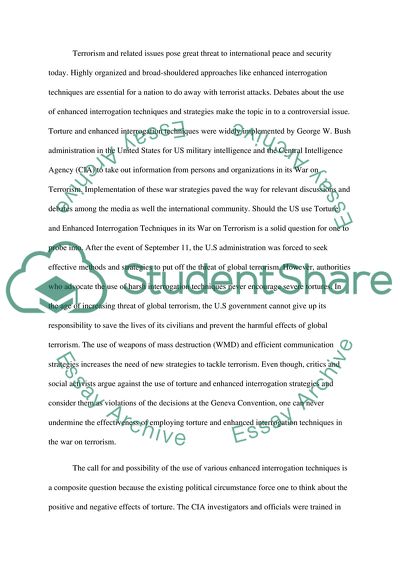Cite this document
(Should the US Use Torture and Enhanced Interrogation Techniques in its Research Paper - 1, n.d.)
Should the US Use Torture and Enhanced Interrogation Techniques in its Research Paper - 1. Retrieved from https://studentshare.org/military/1754007-pows-should-the-us-use-torture-and-enhanced-interrogation-techniques-in-its-war-on-terrorism
Should the US Use Torture and Enhanced Interrogation Techniques in its Research Paper - 1. Retrieved from https://studentshare.org/military/1754007-pows-should-the-us-use-torture-and-enhanced-interrogation-techniques-in-its-war-on-terrorism
(Should the US Use Torture and Enhanced Interrogation Techniques in Its Research Paper - 1)
Should the US Use Torture and Enhanced Interrogation Techniques in Its Research Paper - 1. https://studentshare.org/military/1754007-pows-should-the-us-use-torture-and-enhanced-interrogation-techniques-in-its-war-on-terrorism.
Should the US Use Torture and Enhanced Interrogation Techniques in Its Research Paper - 1. https://studentshare.org/military/1754007-pows-should-the-us-use-torture-and-enhanced-interrogation-techniques-in-its-war-on-terrorism.
“Should the US Use Torture and Enhanced Interrogation Techniques in Its Research Paper - 1”, n.d. https://studentshare.org/military/1754007-pows-should-the-us-use-torture-and-enhanced-interrogation-techniques-in-its-war-on-terrorism.


